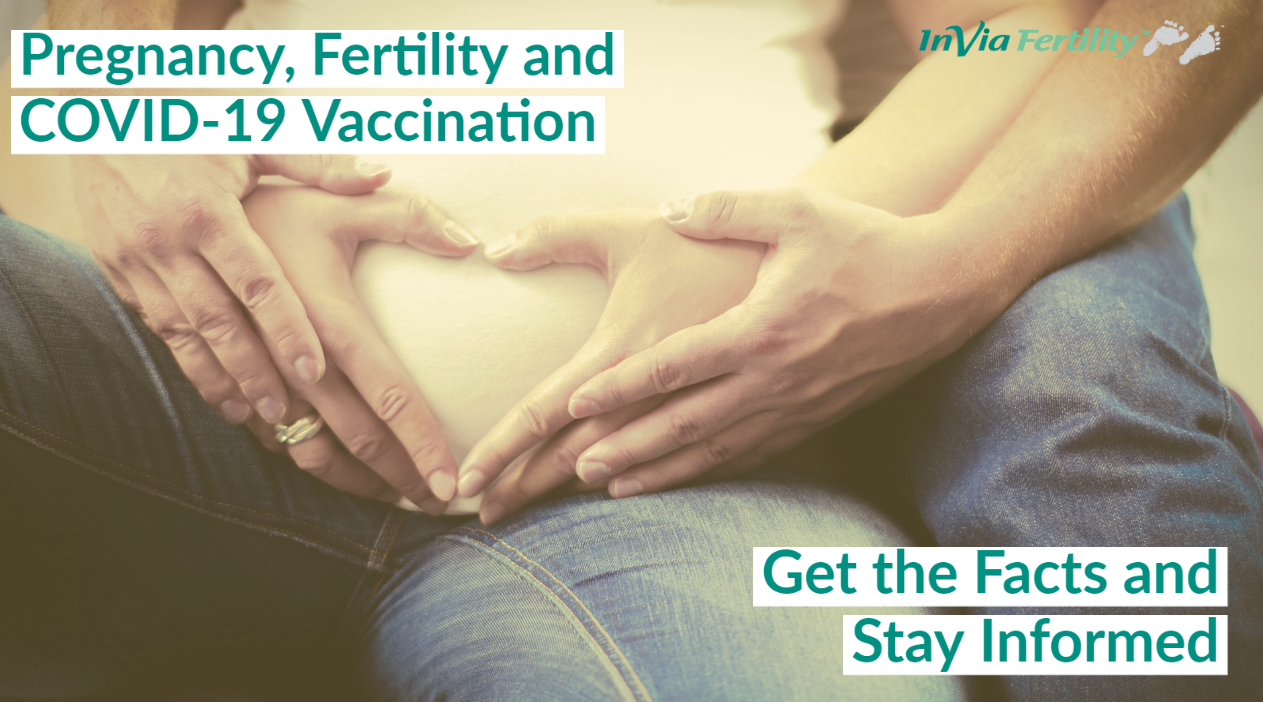We are experiencing a very high volume of calls and messages and ask for your patience. We will answer your portal messages within 48 hours.
We are experiencing a very high volume of calls and messages and ask for your patience. We will answer your portal messages within 48 hours.

2023 has begun with a new COVID variation to be concerned about: the highly transmissible XBB.1.5 variant. While this variant is not yet causing a wave like the one caused by Delta and Omicron in early 2022, it is still putting pressure on hospitals and healthcare facilities. Chicagoland residents can check their area’s hospital capacity at the city’s website or with the Illinois Department of Health.
While it is recommended that any person get vaccinated who is able to, people who are trying to get pregnant (and their partners) or women who are pregnant need to pay special attention due to the increased contagiousness of the Delta variant. The Centers for Disease Control and Prevention (CDC) now strongly recommend that people who are pregnant or planning to get pregnant receive a COVID vaccination.
The CDC has been collecting data on pregnant people since the start of the pandemic. They have found that people who are pregnant or who have recently been pregnant are much more at risk for severe illness and death from COVID infection than other people. Their babies are also more likely to be born prematurely.
The complications of preterm birth can include:
In the long term, preterm birth is associated with cerebral palsy, impaired learning, developmental delays, vision problems, hearing impairments, dental issues, and other chronic health problems.
Because of these risks, the CDC strongly recommends that anyone who is or wants to become pregnant receives a COVID-19 vaccination and the latest booster shot, which protects against severe illness. In spite of this, uptake of the bivalent booster shot has been low. This is a cause for concern given the risk of serious complications associated with the COVID-19 infection to mother and baby.
Misinformation and false stories about the impact of the COVID-19 vaccine have been circulating for more than two years now. The evidence, however, could not be clearer: COVID-19 vaccination does not harm fertility. It protects people against severe disease and saves lives.
Data regarding COVID-19 vaccination with mRNA vaccines in people receiving fertility treatment have shown no difference in pregnancy rates among those who received the vaccine and those who did not, suggesting no effects on fertility outcomes. (Orvieto, 2021) Sperm parameters were also not different in men following COVID-19 vaccination. (Gonzales, 2021) Importantly, there was no increase in miscarriage rates associated with the various COVID-19 vaccines.
In pregnant people, the COVID-19 vaccines were shown to generate protective antibodies that were transferred across the placenta and in the milk of lactating women, offering protection to babies in utero and newborns. (Gray et al, 2021)
The COVID-19 vaccine is safe during all trimesters of pregnancy based on prior data in tens of thousands of pregnant people. There were no differences in the rates on miscarriage, preterm birth, and fetal anomalies compared to expected rates the general population prior to the COVID-19 pandemic.
Additionally, vaccinated individuals have a low likelihood of hospitalization and death associated with COVID-19 infection. 97% of patients hospitalized during the current Delta wave have not been vaccinated.
Data from more than 35,000 pregnant people who received either the Pfizer-BioNtech or Moderna COVID-19 vaccine show that they did not experience any unusual symptoms compared to known side effects in non-pregnant adults. (Shimabukuro, 2021) The most common side effect was pain at the injection site. This was reported more often in pregnant people than non-pregnant people. Other side effects, in order of most to least common, included:
Pregnant people in the study were less likely to report these other side effects than people who were not pregnant. If you do develop a post-vaccination fever of more than 100.4F, we recommend taking acetaminophen (Tylenol). This medication has been shown to be safe during pregnancy.
The American Society for Reproductive Medicine (ASRM), the American College of Obstetricians and Gynecologists (ACOG), and the Society for Maternal Fetal Medicine (SMFM) all support COVID-19 vaccination in people considering attempting to conceive and currently pregnant people. This is because tens of thousands of vaccinations received by pregnant people have proven that the vaccines have a high safety profile. This is also due to the greatly reduced risk of hospitalization and death for vaccinated people.
In addition to these recommendations, the Pfizer-BioNTech mRNA vaccine received full Food and Drug Administration (FDA) approval on August 23, 2021. We encourage all patients to speak to their physicians about the COVID-19 vaccines.
People currently attempting to conceive should:
People who are currently pregnant should:
If you have any questions or concerns about fertility treatment during the pandemic or about vaccination, please don't hesitate to get in touch with our Chicago-area team of board-certified physicians. Make a consultation appointment today!

Entire Website © 2003 - 2020
Karande and Associates d/b/a InVia
Fertility Specialists
